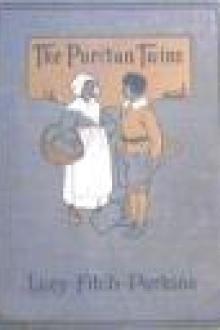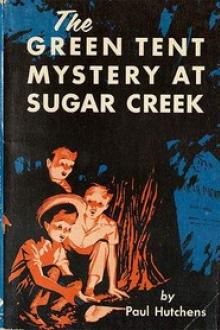Genre Fiction. Page - 183

o! my songs have crossed the ocean
But the voice of my emotion finds no word.
SEE?
If one proves weak who you fancied strong,
Or false who you fancied true,
Just ease the smart of your wounded heart
By the thought that it is not you!
If many forget a promise made,
And your faith falls into the dust,
Then look meanwhile in your mirror and smile,
And say, '_I_ am one to trust!'
If you search in vain for an ageing face
Unharrowed by fretful fears,
Then make right now (and keep) a vow
To grow in grace with the years.
If you lose your faith in the word of man
As you go from the port of youth,
Just say as you sail, '_I_ will not fail
To keep to the course of truth!'
For this is the way, and the only way -
At least so it seems to me.
IT IS UP TO YOU, TO BE, AND DO,
WHAT YOU LOOK FOR IN OTHERS. SEE?
THE PURPOSE
Over and over the task was set,
Over and over I slighted the work,
But ever and alway I knew that yet
I must face and finish the toil I shirk.
Over and over the whip of pain
Has spurred and punished with blow on blow;
As ever and alway I tried in vain
To shun the labour I hated so.
Over and over I came this way
For just one purpose: O stubborn soul!
Turn with a will to your work to-day,
And learn the lesson of SELF-CONTROL.
THE WHITE MAN
Wherever the white man's feet have trod
(Oh far does the white man stray)
A bold road rifles the virginal sod,
And the forest wakes out of its dream of God,
To yield him the right of way.
For this is the law: BY THE POWER OF THOUGHT,
FOR WORSE, OR FOR BETTER, ARE MIRACLES WROUGHT.
Wherever the white man's pathway leads,
(Far, far has that pathway gone)
The Earth is littered with broken creeds -
And alway the dark ma

rs to do the work cheaper, I do not know, but shesuddenly withdrew her custom, and I have never heard from her since.
My next venture was tale writing. Who has not tried this mostunsatisfactory method? It is a tremendously anxious time when yourfirst effort is sent out. What a lot of money you expect to obtain forit! You do not intend to be unprepared, so you spend every penny inyour mind beforehand. Then there is the honor and glory of it! Youwill hear everyone talking of the cleverly written tale and wonderingwho is the gifted author!
What made me more hopeful was the possession of a cousin, who was verysuccessful in this line. Indeed, she has reached the three-volumestage by now, and is beginning to be quite well known. I have lost myinterest in her, however, since she took me and my family off in oneof her books. It is such an easy thing to do. You only have to findout a person's peculiarities--and everyone has a peculiarity!--andoverdraw them a little. My sisters and I, I remember, fig

to Central Park, where the scene was to be filmed, or photographed over again--a "retake," as it is called, the bane alike of camera men and directors.
And while the girls--the moving picture girls--are on their way to do over a bit of work, I shall take the opportunity of telling my new readers something about Ruth and Alice DeVere.
I have called them just what they are: "The Moving Picture Girls," and that is the title of the first volume of this series, which depicts them and their adventures.
Their mother had died some years previously, leaving them to the care of their father, Hosmer DeVere, at one time a talented actor in the legitimate drama. But a throat affection forced him to give up his acting and, at the opening scene in the first volume, we find him and his daughters in rather straitened circumstances, living in a second-rate apartment house in New York.
Across the hall dwelt Russ Dalwood, with his mother. Russ was a "camera man." That is, he took moving pictures in t

fe. One sees that dead, vacant look steal sometimes over the rarest, finest of women's faces,--in the very midst, it may be, of their warmest summer's day; and then one can guess at the secret of intolerable solitude that lies hid beneath the delicate laces and brilliant smile. There was no warmth, no brilliancy, no summer for this woman; so the stupor and vacancy had time to gnaw into her face perpetually. She was young, too, though no one guessed it; so the gnawing was the fiercer.
She lay quiet in the dark corner, listening, through the monotonous din and uncertain glare of the works, to the dull plash of the rain in the far distance, shrinking back whenever the man Wolfe happened to look towards her. She knew, in spite of all his kindness, that there was that in her face and form which made him loathe the sight of her. She felt by instinct, although she could not comprehend it, the finer nature of the man, which made him among his fellow-workmen something unique, set apart. She knew, that, down und

enever one of those beings becomes cognisable by us, he instantly becomes subject to gravitation; and he must resume his own mode of being ere he can be free from its consequences. The Angels were not subject to gravitation; that is to say, they had the means of moving in any direction at will. When they rebelled, and were punished by expulsion from Heaven, they did not fall out; for, in fact, so far as the description intimates, there existed no planet, no distinct material element, towards which they could gravitate. They were driven out by a pursuing fire. Then, after their fall, they had the power of rising upward, of navigating space, of quitting Hell, directing their flight to one glittering planet, alighting on its rotund surface, and then bounding off again, and away to another. A corollary of this fundamental difference between the human condition of being and the angelic would be that angels are capable of direct vertical action, whereas men are capable mainly of horizontal. An arm

"In this manner we should have enough to last us three days -- maybe more -- with equal shares among the three of us..."
Such was his summing of the demonstration, and it passed without comment, as a matter of course in the premises, that he should count as he did -- ignoring that other who sat alone at the stern of the raft, the black Canaque, the fourth man.
Perroquet had been out-manoeuvred, but he listened sullenly while for the hundredth time Dubosc recited his easy and definite plan for their rescue, as arranged with his secret correspondents.
"That sounds very well," observed The Parrot, at last. "But what if these jokers only mock themselves of you? What if they have counted it good riddance to let you rot here? And us? Sacred name, that would be a famous jest! To let us wait for a ship and they have no ship!"
"Perhaps the doctor knows better than we how sure a source he counts upon," suggested Fenayrou slyly.
"That is so," said Dubosc, with great good humour. "My

, ye 'llhave to bail her out. Besides," he added whimsically, looking up atthe sky, "there 's another squall coming on, and two at a time is toomany for any sailor. If I 'm to cast you up on the shore same as thewhale, ye 'll have to tell me which way to go, and who ye are."
"Our father is Josiah Pepperell," answered Dan, "and our house isalmost a mile back from shore near Cambridge."
"So you 're Josiah Pepperell's children! To be sure, to be sure! Mighthave known it. Ye do favor him some," said the fisherman. "Well! well!The ways of the Lord are surely past finding out! Why, I knew yourfather way back in England. He came over here for religion and I camefor fish. Not that I ain't a God-fearing man," he added hastily,noticing a look of horror on Nancy's face, "but I ain't so piousas some. I 'm a seafaring man, Captain Sanders of the Lucy Ann,Marblehead. Ye can see her riding at anchor out there in the bay. Ihave n't set eyes on your father since he left Boston and settled inthe back woods

ortable old fashioned place, situated in one of the most picturesque parts of Sussex. The property was not large, but being so near to fashionable Brighton, the land was valuable, and more than one tempting offer had been made to Sir Lester to part with it for building purposes. The mere thought of The Downs estate being cut up by jerry builders irritated him. His affairs would be in a very bad way when he parted with the place for such a purpose. His house at Hove had turned out a profitable investment; he could obtain double what he gave for it some years ago, and if it came to parting with property that must go first.
Sir Lester Dyke had been hampered from the commencement. His father had spent every shilling he could manage to raise, and left his son a multitude of debts and his affairs in chaos.
"Make a clean sweep of the lot," the lawyer had said, but Sir Lester, who was young and sanguine, laughed the suggestion to scorn, and clung to his property with grim determination. Luckily, he marr

